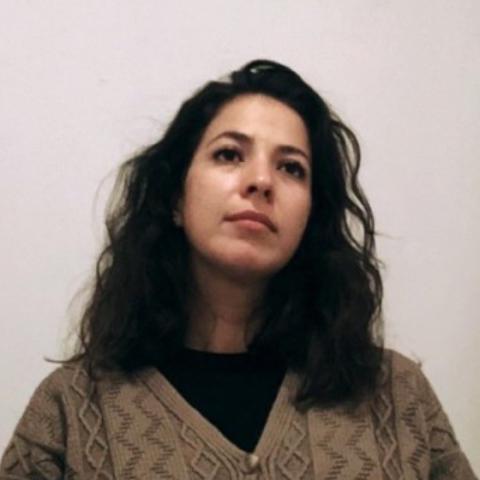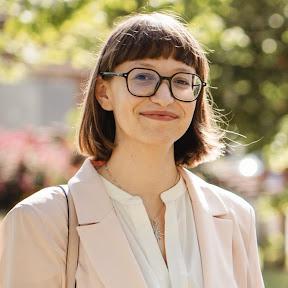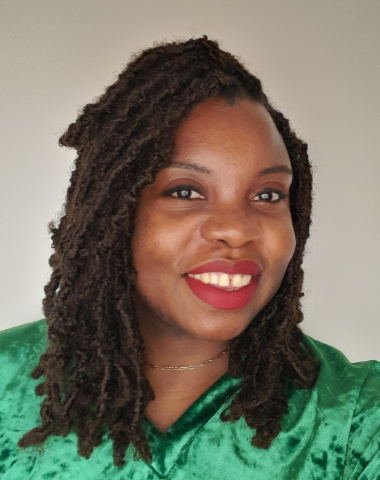Executive skills for the global development system: A spotlight interview with Nuria Sanchez Celemin
Nuria Sanchez is an aeronautical engineer with over a decade of experience in the aviation industry, particularly in the field of Quality & Safety at Airbus. Her career began with a focus on the A400M programme where she worked closely with military authorities as the focal point for industry requirements, overseeing continuing airworthiness and process quality assurance.
Driven by a desire to align her career with the strategic imperatives of our time, Nuria enrolled in IE University’s Executive Master in international Development, a programme co-designed with the United Nations System Staff College (UNSSC). Nuria received the prize for best final thesis. Her research combined the adaptive leadership framework with principles of results-based management to analyze the impact of the aviation value chain on climate change and social and economic development.
In this spotlight interview with UNSSC’s Chiara Coraglia, Nuria shares her learning experience and the impact of the programme on her professional journey.
Chiara: What motivated you to sign up for the executive master programme? What attracted you the most about the programme?
Nuria: I have always enjoyed learning, studying, and upskilling myself. Given my professional background, everyone - my managers, mentors, peers, and business partners - assumed that I would pursue a master of business administration(MBA). However, I was convinced that it was not the right path for me. I knew that I wanted to maintain my technical background and use it to support sustainable development. I wanted to upskill myself in a way that would allow me to make a greater impact in society. Within my social circles I had not seen anyone with a technical aerospace background who wanted to transition into policy or sustainable development. During my search, I came across IE University’s programme. I saw that it was designed in partnership with the UNSSC, and it felt like this was exactly what I was looking for and where I needed to be.
Chiara: If you could summarize your learning experience, what comes to mind?
Nuria: Outstanding! I am absolutely thrilled with my learning journey. At the beginning, I was overconfident and assumed it would be like any other learning experience, but it turned out to be quite challenging from the start. It struck a perfect balance between intellectual stimulation and emotional engagement, which was a new and invigorating experience for me.
The programme involved a lot of writing, reading, understanding, and practical implementation. Everything I learned opened my mind in many ways. Most of my life, I've been studying and working in Europe, so joining this programme with people with diverse backgrounds from around the world was truly eye-opening. I realized early on that I was gaining valuable knowledge that would change my perspective in numerous ways. I experienced significant personal growth because of this programme, and it's something I continue to share with my colleagues.
Chiara: What were your most valuable lessons from this programme?
Nuria: I took one of the first courses on sustainable development and the 2030 Agenda. I remember asking the UNSSC Director, Jafar Javan, and the UNSSC Chief of Academic Partnerships, Simona Costanzo Sow, "The work being done is exceptional, but how do you measure your goals and monitor implementation since it's not target driven?" I realized that due to my background, I was too focused on the strictness of delivering on time. Their response gave me a new understanding. They said that when you want to make an impact that is inclusive and uses a collective approach, it takes time. It's not something that can be rushed. Sometimes it's two steps ahead and one step backward. If you are going to consider a holistic view, it will be difficult and challenging. It's not just black or white; there is a huge amount of grey.
Chiara: What are the three main skills you learned during this programme that will prove most relevant for advancing your career?
First, organizational change. To me, change management really comes down to practical terms and behavioural science, something that I had never considered with my technical background. I used to take the results based on technicalities path without considering the science behind the minds that implement the solutions.
Second, using the result-based approach for programme management. It pushed me to better understand the problem before seeking solutions. Frequently, we assume that we all understand the problem the same way and jump into timelines and milestones without investing time in understanding the issue and evaluating the results. We need to be humble enough to change and switch direction if the results obtained are not making an impact.
Chiara: Would you recommend this programme to your peers and colleagues? Why?
I would highly recommend this programme, especially for budding industry leaders. It is essential for individuals working in technical careers, such as aerospace or manufacturing, to grow from being a technical expert to a leader. I believe that this type of learning is essential for managers and decision-makers in technical and industrial fields, especially if they want to make a real impact on society. When you have significant influence, it's crucial to ensure that your direction aligns well with your values and that you have the necessary support.
It's not just about personal feelings, but also about upskilling in this area. Even those who consider themselves open-minded and inclusive need to continue upskilling. Therefore, I would strongly recommend this programme to all top management in STEM industries, since continuous learning is especially important.
Chiara: Tell us a little bit about your thesis.
Today, aviation faces the dual challenge of addressing climate change and capitalizing on its potential to boost social and economic development. The sector is at a crucial point where sustainable actions are urgently needed across all levels, from aircraft manufacturers to governments and the logistics network. Despite the industry's efforts, a lack of a unified framework hampers progress toward sustainability. My research paper proposes a redefinition of the aviation sector’s goals, aiming to align the growing demand for air travel with environmental preservation and the promotion of sustainable economic and societal growth.
Chiara: How did the programme support you while working on your thesis?
I had a clear vision of what I wanted, and it helped me. Not only with the courses I took, but also with the research and interviews I conducted. Initially, I was quite disorganized, and my approach was messy. However, the university helped me to organize my ideas, clarify my storytelling, and improve the coherence and understanding of my work. The guidance I received was pivotal in redefining the problem statement, which was crucial. This experience taught me the importance of defining and presenting problems clearly from the beginning. Thankfully, these changes greatly aided in developing my research.
Take the opportunity to boost your career in sustainable development. Sign up for IE University’s executive master in international development


